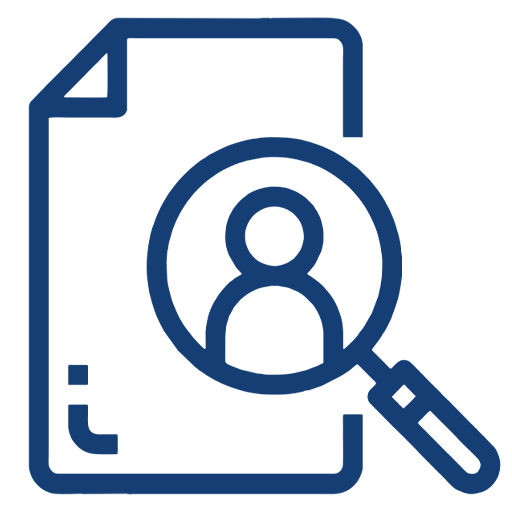Engineering Education

Engineering education of the 21st century demands, education to be knowledge based with rich innovation and value creations. On graduation one should have an engineering career of 40 years. Today, Education is an institutionalised programme based on statutory and regulatory bodies guidelines and the local and global needs. Needs could be based on knowledge, intelligence and skills built on strong fundamental, foundation and core knowledge. It needs intentional and planned activity based on curriculum and courses developed with the support of various stakeholders. In totality, it makes up the formal education system of a country. Gen-Z looks for an education which is pragmatic, contemporary and futuristic. Therefore, institutions need to make learning structured, guided and career oriented. Learning shall Create strong fundamentals and foundations with programme specific core knowledge and supplementary knowledge for competitive edge. It should develop graduate skills attributes needed by industry and the professional world keeping the students interest in mind. All efforts of the institute shall focus to make students competitive and industry ready to join the industry or corporate. They need to be groomed for ethical practices, socially connected with concern for the environment.
At TCET, it is addressed through Curriculum and courses-DAD at regular intervals as per the standards, effective Implementation with MAC. Based on learning, necessary amendments and revision are done. Developing instructional and learning platforms with rich pedagogy and technology to simplify learning. Learning validation through tests, examinations and E&A for certifying the compliance and excelling in the course and the professional placement on graduation. To broaden the scope of education and career, the institute has an Education domain: Academic, Training and Research with a rich component of Educational activities under curricular, co curricular, extracurricular, and professional activities. Learning experiences are enhanced by integrating 4T's i.e Tools, techniques, technology, technology platforms. Overwhelming responses are seen among aspiring learners pool for consistent admission particularly at local level. It also brings learning and developmental engagement as a professional graduate.
Therefore, learners develop the needful KSA and ACM who can not only do the traditional and routine jobs but also give the vision, create new avenues, create new jobs, help the industry to diversify the activities for sustainability and also provide the individual a lifelong career. Therefore Recent decades have seen drastic changes in technical education. Education has changed from output based to outcome based education. To meet the requirements, institutions are required to conduct learner-centric activities with a faculty-driven and career-oriented system. It demands academic development with research orientation. It is mainly for rich personality and professional attributes development and life-long learning attitude needed for the rewarding career. These attributes are attained through programme and programme specific outcomes attainment within the perspective of National Board of Accreditation(NBA). To bring uniformity to the programme attainment at national level, AICTE, technical education regulatory body has taken the initiative to provide a Model curriculum for engineering programmes with guidelines for examination reforms and the internship programme. Its effective implementation will help TCET to meet the requirements of OBE and get the NBA accreditation for all the eligible courses.
A journey of quality education at TCET started in the A.Y. 2006-07 with the implementation of the following quality models:
- Currently the institute is practising ISO 9001:2015 based QMS consisting of institutional and management processes aligned with functional areas since A.Y. 2005-06. Performance excellence model based on the Malcolm Baldridge model implemented in A.Y.2015-16 to make things student centric for rewarding careers. This has not only improved the academic result and success rate but also improved the professional placement of the graduates from the campus. This was followed with an effective implementation of the 6S quality model for conducive working and teaching learning productivity since A.Y. 2017-18 onwards. It has brought continuity and consistency in the key performance area.
- Bloom's Model of learning in A.Y. 2012-13 and 4H (head,heart, hand, and health) life skill model in A.Y.2015-16. This has made the learning more meaningful, purposeful and career oriented. This also helped us to align the scorecard with thd KSA acquired during the programme duration.
- Effective implementation of guidelines of Outcome Based Education which is the mandate of GOI for NBA based programmes accreditation since A.Y. 2008-09 and NAAC which is institute accreditation in A.Y 2017-18 followed by UGC Autonomy in A.Y. 2019-20.
At TCET it is well received and as a result the institution is getting NBA over multiple cycles, NAAC with A grade and Autonomous with national rating/ranking including NIRF ranking and AICTE-CII rating (platinum category). TCET strives hard to maintain consistent demand for all programmes and courses irrespective of the market condition. Provide contemporary education for a brighter career. Also to inculcate a system based approach among the students to be adopted in the professional world (PW) to improve the graduate acceptance in the industry. TCET as an institution is striving to be one of Top Engineering colleges known for academics as well as research.
Outcome Based Education
Outcome-Based Education (OBE) is a student-centered approach that focuses on measurable outcomes and achievements, emphasizing assessing students's knowledge, skills, and abilities. It includes components such as the success rate of students, eligibility for placement, student placement, and the ability to appear for competitive exams. At TCET, OBE prioritizes student success by monitoring the success rate, adjusting teaching methods and support systems, and improving curriculum design. It also aligns the curriculum with industry standards to ensure students possess the necessary skills for their careers. OBE prepares students for competitive exams by providing comprehensive training and aligning the curriculum with examination requirements. In technical education, aptitude, attitude, skills, and behavior are crucial for success. TCET fosters positive attitudes, nurtures aptitudes, and promotes professional behavior by creating supportive environments, offering career guidance, modeling professionalism, and providing personalized support. OBE enhances institutional reputation, supports accreditation processes, and prepares students for further education or employment. Strengthening the curriculum, innovative assessment methods, and evaluation processes are integral to the success of OBE, enabling students to develop critical thinking, problem-solving, and independent learning skills.
Skill Based Education
Skill-based education, also known as vocational or technical education, has gained significant attention and importance in recent years. Unlike traditional academic education, which primarily focuses on theoretical knowledge, skill-based education emphasizes practical skills that are directly applicable to the professional world. This type of education equips students with the necessary expertise to excel in specific fields and industries, fostering employability and career success.One of the key advantages of skill-based education is its relevance to the job market. By focusing on developing practical skills, students gain a competitive edge in their chosen industries. TCET has adopted skill based education by aligning education with the needs of the economy, bridging the gap between classroom learning and real-world application. For imparting skill-based programs TCET has collaborated with industry partners, ensuring that the curriculum is up-to-date and reflects the latest trends and advancements in the field. This collaboration also creates opportunities for internships, apprenticeships, and job placements, enhancing students' practical experience and increasing their chances of securing employment. Furthermore, skill based education at TCET encourages students to think creatively, solve real-world problems, and develop practical solutions. TCET emphasizes hands-on learning and project-based assignments as it helps students to develop critical thinking, problem-solving, and decision-making skills. These skills are essential for entrepreneurs who need to navigate challenges, identify opportunities, and create successful ventures. This skill based education enhances entrepreneurship and innovation in students. Skill-based education at TCET also fosters lifelong learning. As technology and industries continue to evolve rapidly, individuals need to adapt and acquire new skills throughout their careers. Therefore, through Skill-based programs at TCET we cultivate a mind-set of continuous learning and adaptability, empowering individuals to stay relevant in an ever-changing job market. This through skill based education at TCET students are equipped with a strong foundation of practical skills, they are better equipped to learn and master new technologies, techniques, and industry-specific knowledge as needed. Skill-based education at TCET plays a vital role in preparing individuals for the workforce. It offers a practical and relevant approach to learning, aligning education with industry needs. By emphasizing practical skills, fostering entrepreneurship, and promoting lifelong learning, skill-based education equips individuals with the tools TCET students thrive in the professional world. It empowers TCET students to pursue their passions, contribute meaningfully to their chosen fields, and adapt to the dynamic demands of the global economy.
Research Based Education
National Education Policy (NEP) 2020 envisages the promotion of quality research within the Higher Education System. Thakur College of Engineering and Technology (TCET) committed to quality research. Multiple research promotion platforms are made available to students and faculty members. Research, innovation and development are important aspects to enhance quality education. After receiving Autonomy institute has designed its schema. Research Based Learning (RBL) has been given a unique platform in the form of four credits over two years in all UG courses. This is in addition to various designed and research based subjects in syllabus. TCET-R&D Cell has well equipped Component Library. Students can issue components required to test their ideas. This particular initiative is fruitful to augment students' experimental skills with creative thinking. Every year students are encouraged to take part in various Hackathon, Ideathon organized by the Central government, AICTE, various MNCs and other industries. TCET students participate in Smart India Hackathon, AVISHKAR-Maharashtra State Inter-University Research Convention and receive prizes at various levels. The integration of Research, Innovation and Technology Development is the foundation of Atma-Nirbhar Bharat (Self-reliant India). Student Special Interest Group (SSIG) is a unique platform where students from different branches of engineering come together for interdisciplinary projects. Currently more than 200 students are working on different technologies. Institute provides the dedicated labs for each group with competent facility as mentor. TCET student team is participating in European Hyperloop Week (EHW) 2023 which will be organizing in the month of July, at Edinburgh, Scotland. TCET emphasize the importance of ethical research especially in PG and Ph. D. students. Encourage a culture that values and rewards innovation, creativity and risk taking. Celebrate and recognize achievements in research and create opportunities for researchers to showcase their work within and beyond TCET by collaborative research with IITs and government research labs. TCET has industry collaborations and signed 38 MoU’s in last two years which gives the industy exposure to learners. TCET has filed 39 patents out of which 14 patents are granted. TCET students and faculty published 951 research papers in various journals and conferences in A.Y. 2022-23. Our faculty members are recipients of various grants from AICTE, IEEE, DST Government of India etc. Many Faculty members are actively involved with Consultancy work of renowned industries, also providing the training to corporate industries and government sectors. TCET believe that societal challenges of our country can only be addressed by having a strong and vibrant higher education ecosystem with an emphasis on research, innovation and technology development. TCET is committed to build a platform for research, innovation and technology development by the sincere efforts.
Educational Model

Academic, Skill, Research and Attribute development for academic independence, academic based career and academic leadership.

Multidisciplinary learning with the different disciplines of basic learning, minor and major subjects

Specialisation in programme department elective as per programme needs, domain through major subjects, project management, multidisciplinary Projects.

Co Curricular activities by Professional practices through HSD, industry elective, ind industry readiness, and global career with competitive edge.

Extracurricular for personality development, team building, organisational mindset, leadership, mentorship, holistic development.
Education Curriculum Highlights


Hybrid mode of education (physical, online and trainer driven virtual/remote learning platform)

Aligned with national education policy. NEP 2020 and National credit framework (NCrF) adopted

Supports Holistic, multidisciplinary and specialised learning through the various offering viz Offering of major (Honors course) and minor (multidisciplinary)

Internships at multiple levels where in-house and outhouse are mandatory and industry professional internship as optional in final semester

Option of curriculum project in industry

Curriculum integrated with industry qualification pack for certification professional career and practice

Rich pedagogy, andragogy and heutagogy integrated to simplify teaching of learning, to make learning happen, make it practical oriented and students shall become independent learners for life long.
Currriculum
Quality education journey demands an evolving curriculum which should not only match with local and global curriculum standards but also fulfil the needs of the hour by providing flexibility, acceptability and agility. TCET understands the needs and hence always strives to bring excellence and relevance in the curriculum.
The curriculum adopted in autonomy shall equip the students with necessary Knowledge, Skill, and Social Sensitivity required for professional career and lifelong learning. TCET follows the AICTE model curriculum for academic conduct. It includes courses and syllabus to be taught over four years with proper sequencing and the credits allocations as per the national standards. This is mainly to ensure that students passing out from TCET shall be engineering graduates as per national and international standards.
To meet the professional requirements, TCET has also implemented the POs as per the graduate attributes given by the NBA. This is not only to design the curriculum which suits knowledge developments, but also the regulatory compliances, industry and professional requirements, and research orientation to make education contemporary, pragmatic and futuristic. This is developed on the concept of simplification, extensification by incorporating suitable pedagogy, andragogy and heutagogy.
Being autonomous from A. Y. 2019-20 onwards, the college has the freedom to design its own curriculum, not only trying to comply with the requirements of affiliated universities but also trying to achieve global excellence in the field of technical education. Revision cycle has been set for three years where the first and second year curriculum revisions are done simultaneously. Curriculum integrates the AICTE model course curriculum, highlights the practical & practice based learning, problem & project based learning, industry & research orientation and pedagogy is supplemented with andragogy & heutagogy. Integration has made the curriculum competitive with unique features to support holistic and multidisciplinary learning.
Intention is to develop an integrated curriculum is to build the higher order skills on the strong foundation of lower order skills among the learner which is today found missing in the system. The strategy and approach for curriculum design has not only made the institute achieve various compliances but also made the curriculum evolutionary and well accepted by stakeholders including industry. Since autonomy, the institute has implemented the CBGS-H (Choice Based Grading System-Holistic) education system to fulfil the needs of 21st century learners and the industry. Conventional TLP is supplemented with Activity Based Learning (ABL), Project Based Learning (PBL), Research Based Learning (RBL) and Technology Based Learning (TBL). For industry readiness and professional development, the institute has also introduced INTERNSHIP, ESD PSD, This has been further supplemented with the major and minor courses with optional credits mainly to differentiate between fast and slow learners and also to strengthen online learning from the accredited portal. Courses and Curriculum has enabled the institute to promote interdisciplinary, multidisciplinary and transdisciibary education along with holistic education. Integration of the competitive examination curriculum enables the students for global competitiveness with global mobility.
RBT and 4H models are implemented for learning effectiveness.Direct and indirect means of E&A with emphasis on Formative and Summative assessment are strengthened further to assess the learning outcomes and necessary continual improvement. Attainment of Programme Outcomes (POs) and Programme Specific Outcomes (PSO) are well aligned with the Programme Educational objectives and the purpose of the institute defined as MVS. The integrity and commitment of faculty and academic leadership supports compliance of quality education with continual improvement.
In the current Academic year (A.Y. 2023-24), TCET autonomy curriculum has also re-aligned with NEP 2020 based on the National Credit Framework (NCrF) of AICTE/UGC. Industry qualification pack (skill based curriculum) credits are included. With all these provisions, not only the students' aspiration will be fulfilled but also the industry expectations for a skilled task force will be met.
Curriculum Framework
| Sr. No | Components | No. of Credits | Percentage |
|---|---|---|---|
| 1 | Engineering & Technology | 122 | 70.11 % |
| 2 | Humanities | 14 | 8.09% |
| 3 | Skill Oriented | 20 | 10.98% |
| 4 | Research Oriented | 15 | 8.67% |
| 5 | Holistic | 3 | 1.73% |
| 6 | Multidisciplinary & Interdisciplinary | 9+18* | 5.20% |
|
*1) Optinal credits through Minor course(18 credits) enable students for multidisciplinary degree 2) Optinal credits through Major course(18 credits) enable students for Specialization with Hons. Degree 3) One can opt for either or both. |
|||
*Engineering & Technology
| Sr. No | Category | No. of Courses | Number | Percentage |
|---|---|---|---|---|
| 1 | Humanities and Social, Sciences including, Management courses(HSMC) | 5 | 14 | 8.09% |
| 2 | Basic Science courses(BSC) | 6 | 25 | 14.45% |
| 3 | Engineering Science courses including workshop, drawing, basics of electrical / mechanical /computer etc(ESC) | 7 | 26 | 15.02% |
| 4 | Professional Core Courses(PCC) | 14 | 55 | 31.79% |
| 5 | Professional Elective courses relevant to chosen specialization/branch(PEC) | 4 | 14 | 8.09% |
| 6 | Open subjects –Electives from other technical and /or emerging subjects (OEC) | 3 | 9 | 5.20% |
| 7 | Project work, seminar and internship in industry or elsewhere(EEC) | 7 | 15 | 8.67% |
| 8 | Holistic Multidisciplinary Education Credits(HME- ABL/PBL/RBL) | 3 | 3 | 1.73% |
| 9 | Holistic Multidisciplinary Education Credits(HME-PS&IP,IC) | 11 | 13 | 7.43% |
| 10 | Non Credit Mandatory Course(MC) | 5 | 0 | 0 |
| Total | 65 | 174 | 100% | |
| Optional Credits | ||||
| 11 | Specialization Courses (Honors And/Or Minor Degree) | 6 | 18 | -- |
| 12 | Achiever’s Credit | 3 | 3 | -- |
Academics

Thakur College of Engineering & Technology (TCET) since its inception has been instrumental in offering quality technical education to aspiring students through System-Driven-Student-Centric approach. In the last decade, the TCET has put its best efforts to focus on broad based education leading to holistic development of students as per international graduate attributes. TCET aspires to strengthen its programme offerings to make its graduates “Globally Competent, Locally Relevant and Skill Oriented.”
The Choice-Based-Credit-Grading System for Holistic and Multidisciplinary Education (CBCGS- HME 2020) is based on AICTE model curriculum and UGC (Minimum standards of instruction for grant of First Degree through Formal Education) Regulations, 2003. Autonomy Scheme includes Scholastic, Co-scholastic and Non-scholastic Credits, which are Compulsory for every student. Additional Credits are assigned under Specialization (optional credits in Emerging Areas).
The curriculum focuses on promoting Holistic Student Development (HSD) which includes courses on Professional skills which focus on Basic Technology skills for second year, Industry/ Research/ Entrepreneurship skills for Third year and Final year. Project Based Learning (PBL) is made common for SE, TE, BE under HSD along with ABL (Co-curricular/ Extra-curricular/ Extension) for FE and SE students and RBL (Online/ MOOCs) for TE and BE students. The students are also encouraged to take up Internships at core companies which would enhance their skills and make them updated with the current industry needs.
The academics for S.E. to B.E. start from July and for F.E. starts from August every year. Academic year is divided into two semesters. Each semester is of six months and instructions are conducted for 15 weeks per semester.
Semesters are divided into odd and even semesters. Odd semester includes I, III, V & VII and are conducted from July to December. Even semester includes II, IV, VI & VIII and are conducted from January to June.
To conduct the session, institute prepares its own academic calendar which is notified on institute notice board and upon web site. Academic activities during the semester includes:- Theory / Practical / Tutorial/HSD sessions as per academic timetable displayed before the commencement of semester.
During the semester, students need to undergo continuous evaluation in the form of the timely completion of formative assessments, preparing laboratory journals, In-Semester Examination etc.
At the end of each semester, there is End semester examination and to appear in the same, the students must have à minimum 75% of attendance in every subject and à complete term work requirement satisfactory at the end of the term
Academic conduct is taken care by the respective academic department for SE to BE and for FE is taken care by H&S Department.
Subject schemes with syllabus
details for students can seen on
College Website